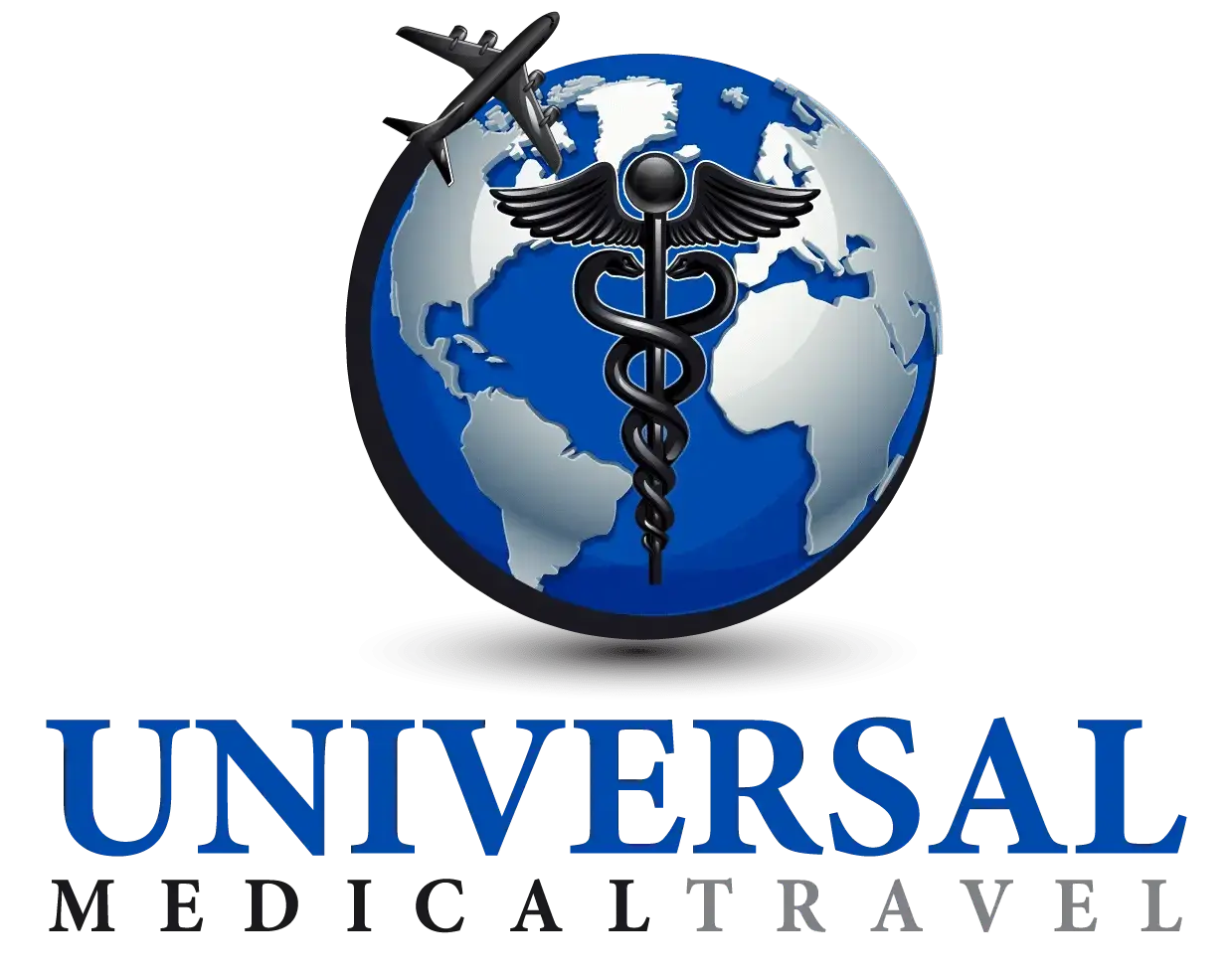Stem cell therapy has emerged as a revolutionary treatment for a range of conditions, from degenerative diseases to injuries. Turkey has become a prominent destination for stem cell therapy, attracting patients from across the globe due to its advanced healthcare infrastructure, skilled specialists, and competitive pricing. The country’s commitment to medical innovation and universal medical travel has made it an appealing option for international patients seeking cutting-edge treatments at lower costs.In this blog, we will explore the cost of stem cell therapy in Turkey, types of treatments available, additional expenses to consider, and why Turkey is a preferred destination for this transformative therapy. We will also cover cultural and ethical considerations, visa information, and provide answers to common FAQs about stem cell therapy in Turkey.
Cost of Stem Cell Therapy in Turkey
The cost of stem cell therapy in Turkey typically ranges from $3,000 to $15,000, depending on the specific treatment, clinic reputation, and any additional services provided. Prices vary based on factors like the number of stem cell injections, procedure complexity, and additional therapies included.
Stem cell therapy in Turkey presents a highly affordable option. The exact cost varies based on the specific therapy, the medical condition being addressed, and the clinic selected. Compared to countries like the United States, the UK, or other parts of Europe, Turkey provides a more economical alternative for patients seeking this advanced treatment.
This price range includes treatments for various conditions, such as joint regeneration, spinal cord injuries, neurodegenerative diseases, and more. While the cost is significantly lower than in Western countries, patients still receive world-class care and personalized treatment plans designed to optimize results.
Table of Treatment Types and Costs
| Type of Stem Cell Therapy | Approximate Cost (USD) |
|---|---|
| Orthopedic Stem Cell Therapy | $3,000 – $6,000 |
| Neurological Stem Cell Therapy | $5,000 – $10,000 |
| Cardiovascular Stem Cell Therapy | $4,000 – $8,000 |
| Stem Cell Therapy for Diabetes | $6,000 – $12,000 |
| Cosmetic Stem Cell Therapy | $3,500 – $7,000 |
| Spinal Cord Injury Stem Cell Therapy | $8,000 – $15,000 |
| Condition | Cost (USD) |
|---|---|
| Osteoarthritis | $5,000 – $10,000 |
| Rheumatoid Arthritis | $6,000 – $15,000 |
| Spinal Cord Injury | $15,000 – $25,000 |
| Multiple Sclerosis | $10,000 – $20,000 |
| Stroke | $10,000 – $20,000 |
| Cerebral Palsy | $10,000 – $25,000 |
| Joint Injuries | $5,000 – $12,000 |
| Hair Loss (Alopecia) | $5,000 – $10,000 |
| Crohn’s Disease | $10,000 – $20,000 |
| Autism Spectrum Disorder | $10,000 – $30,000 |
| Parkinson’s Disease | $15,000 – $25,000 |
| Muscular Dystrophy | $10,000 – $30,000 |
| Alzheimer’s Disease | $15,000 – $30,000 |
| Diabetic Complications | $10,000 – $20,000 |
| Liver Disease | $10,000 – $25,000 |
| Peripheral Vascular Disease | $8,000 – $15,000 |
| Tendon Injuries | $5,000 – $10,000 |
| Asthma | $8,000 – $15,000 |
| Systemic Lupus Erythematosus | $10,000 – $20,000 |
| Heart Disease | $15,000 – $30,000 |
Additional Costs to Consider
When planning for stem cell therapy in Turkey, it is essential to factor in additional costs that may arise during your stay. Some of these costs include:
- Consultation Fees: Initial consultations with specialists may range from $100 to $300, depending on the clinic.
- Pre-Treatment Diagnostic Tests: These may include blood tests, imaging, and other evaluations, which typically cost between $200 and $500.
- Post-Treatment Rehabilitation: Physical therapy and follow-up care may range from $500 to $1,500 depending on the duration and intensity of the program.
- Travel and Accommodation: The cost of airfare and hotel accommodations will vary based on your preferences and the length of your stay, generally ranging from $1,000 to $3,000.
- Medications and Supplements: Patients may need medications or supplements during and after treatment, costing between $200 and $500.
Reasons to Choose Stem Cell Therapy in Turkey
Turkey has become a leader in the field of stem cell therapy for several compelling reasons:
- Advanced Medical Infrastructure: Turkey boasts state-of-the-art hospitals and clinics equipped with the latest technology for stem cell therapy.
- Experienced Specialists: Turkish doctors and researchers are highly trained and often collaborate with international experts to stay at the forefront of stem cell research and application.
- Cost-Effective Treatments: The cost of stem cell therapy in Turkey is significantly lower than in many Western countries, without compromising the quality of care.
- Personalized Treatment Plans: Turkish clinics focus on patient-centered care, tailoring treatment plans to the individual needs of each patient for optimal results.
- Tourism and Medical Travel: Turkey’s position as a hub for medical tourism offers patients the opportunity to receive top-notch care while exploring the rich history, culture, and landscapes of the country.
Cultural and Ethical Considerations
Cultural and ethical considerations play an important role when seeking medical treatment abroad. In Turkey, stem cell therapy is regulated by government authorities to ensure ethical practices, patient safety, and compliance with international standards. Additionally, Turkish clinics are known for their cultural sensitivity, providing multilingual staff and catering to the needs of patients from diverse backgrounds.
Patients are encouraged to inquire about the specific ethical protocols followed by the clinic they choose, especially regarding the sourcing of stem cells and the methods used in treatment.
Visa Information for Traveling to Turkey for Treatment
If you are traveling to Turkey for stem cell therapy, you will need a medical visa. The process is straightforward and involves the following steps:
- Obtain a Letter from the Hospital/Clinic: This letter will confirm your appointment and treatment plan, which is required for visa application.
- Apply Online or at an Embassy: You can apply for a medical visa through the Turkish e-visa portal or at the nearest Turkish embassy or consulate.
- Submit Required Documents: These include your passport (valid for at least six months), the hospital letter, proof of financial resources, and travel insurance.
- Visa Fees: Visa fees vary depending on your nationality but typically range from $50 to $100.
Medical visas are generally granted for 90 days but can be extended if necessary.
FAQs About Stem Cell Therapy in Turkey
What conditions can stem cell therapy treat in Turkey?
Stem cell therapy in Turkey can treat a wide range of conditions, including orthopedic issues like osteoarthritis and joint injuries, neurological conditions such as Parkinson’s and multiple sclerosis, cardiovascular diseases, diabetes, and cosmetic concerns like skin rejuvenation and hair restoration.
How long does stem cell therapy take?
The duration of stem cell therapy varies depending on the condition being treated. Generally, the procedure itself can take a few hours, but recovery and follow-up appointments may extend the treatment period to several days or weeks.
Are Turkish clinics safe for stem cell therapy?
Yes, Turkish clinics adhere to international standards for safety and ethics. They are regulated by the Ministry of Health and other governing bodies to ensure patient safety and the use of approved methods for stem cell harvesting and therapy.
What are the success rates of stem cell therapy in Turkey?
Success rates depend on the condition being treated and the individual patient’s response to therapy. Generally, patients report significant improvements in symptoms and quality of life after treatment, with success rates ranging from 60% to 90%, depending on the specific therapy.
What is the recovery process like after stem cell therapy?
Recovery after stem cell therapy is usually quick and minimally invasive. Most patients experience mild discomfort at the injection site, which subsides within a few days. A rehabilitation plan may be provided to aid recovery and enhance the treatment’s effectiveness.
Can international patients access financing for stem cell therapy in Turkey?
Yes, many clinics offer financing options and payment plans for international patients. Some also work with medical tourism insurance companies to help cover the cost of treatment.
Is stem cell therapy legal in Turkey?
Yes, stem cell therapy is legal and regulated in Turkey. Clinics are required to follow strict ethical and medical guidelines to ensure the safety and efficacy of treatments.
How do I choose the right clinic for stem cell therapy in Turkey?
Research is key when choosing a clinic for stem cell therapy. Look for clinics with experienced specialists, advanced technology, positive patient reviews, and accreditation by international health organizations.
Is there a waiting period for stem cell therapy in Turkey?
The waiting period depends on the clinic and the treatment plan. Some clinics can schedule patients within a week, while others may require a longer waiting time, depending on the complexity of the case and the availability of specialists.
How can I ensure the best outcomes from stem cell therapy in Turkey?
To achieve the best outcomes, follow your doctor’s pre-treatment and post-treatment instructions carefully. Additionally, maintain a healthy lifestyle, adhere to any prescribed rehabilitation, and attend follow-up appointments for continuous monitoring of your progress.
Conclusion
Stem cell therapy in Turkey is an attractive option for patients seeking advanced, cost-effective treatment for a variety of conditions. With its cutting-edge technology, experienced specialists, and affordable pricing, Turkey is a leading destination for medical travelers. By understanding the costs, additional considerations, and preparation needed, you can make an informed decision about undergoing stem cell therapy in this vibrant and dynamic country. Whether for orthopedic, neurological, or cosmetic purposes, stem cell therapy in Turkey offers patients a chance at a better quality of life through innovative medical solutions.
Your Health Journey Starts Here – Connect with Our Consultants Today!
Please complete and submit a Patient Information Form to authorize our agency to forward your protected health information to the healthcare provider of your choice.Get 5% off your treatment by using discount code UMT5%.
Patient Information FormReferences
Medical and regulatory sources used to support the information in this article.



